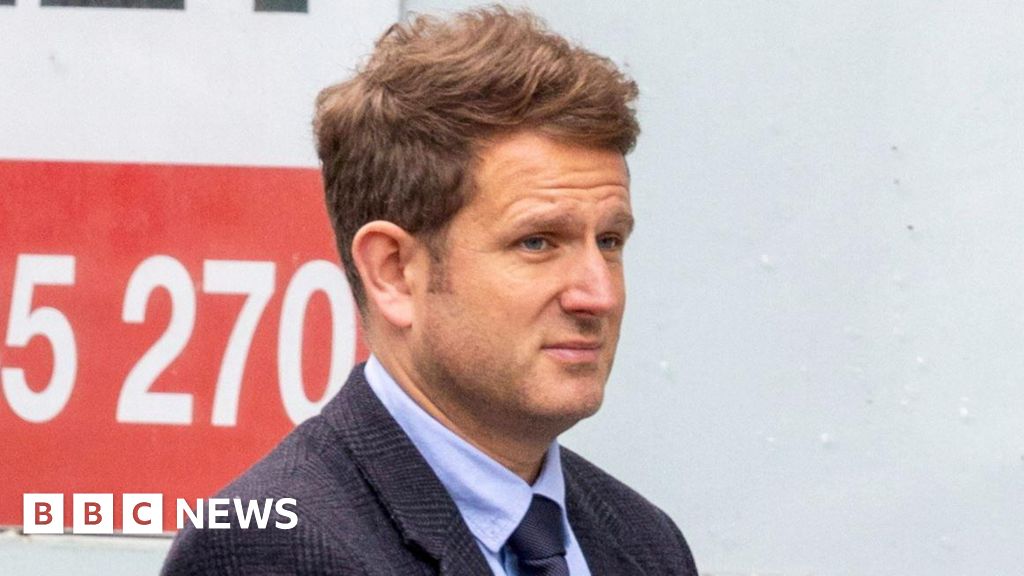Its last front page featured a single headline: “We say NO to Power 1996-2023.”
Dozens of journalists, prosecutors, judges and human-rights activists have fled Guatemala in recent years as the government has taken an increasingly authoritarian turn.
In the case of El Periódico, not only is Zamora in prison; four of his defense attorneys have been detained on criminal charges. Six reporters and three columnists are under investigation.
“It’s really becoming a country where democracy is dying,” said Eric Olson, director of policy at the Seattle International Foundation.
Independent media in Central America are facing some of their most difficult moments since several of the region’s countries transitioned from dictatorship to democracy two decades ago.
The storied Nicaraguan daily La Prensa, edited by generations of the Chamorro family, left the country in 2022 after its publisher and journalists were imprisoned or harassed by the government of Daniel Ortega. In El Salvador, the investigative publication El Faro recently moved its administrative headquarters to Costa Rica, saying that its journalists had been targeted with spyware attacks, threats and “fabricated criminal accusations” during President Nayib Bukele’s crackdown on gangs.
The Biden administration has identified strengthening anticorruption programs and governance in Central America as crucial to deterring illegal migration. “Despite all that,” Olson said, “these countries have continued on this downward path and seem to be kind of ignoring the United States.”
El Periódico distinguished itself with hard-hitting coverage of government corruption, publishing more than 200 investigations since President Alejandro Giammattei took office in January 2020. The daily has won many awards; Zamora was named one of 50 World Press Freedom Heroes by the International Press Institute in 2000.
The publisher has been in jail since July, accused of money laundering, blackmail and influence peddling. He has called his arrest a “political persecution.” Analysts and human rights groups say it will be difficult for Zamora to get a fair trial in a system led by Attorney General María Consuelo Porras, a Giammattei ally accused of penalizing Guatemalan prosecutors who have pursued corruption or human rights violations. Last year, Porras was placed on a U.S. State Department list of “corrupt and undemocratic actors.”
The attorney general’s office did not respond to a request for comment Monday on Zamora’s case. The government has said Zamora was being investigated for allegedly illegal business activities, not his journalism. No one answered the telephone in the presidential press office. Giammattei has defended Porras as independent.
Julia Corado, the editor of El Periódico, said Zamora’s arrest had been a huge blow.
“The government thought we would only be able to keep the newspaper going for two weeks at most after he was detained, but the reporters and staff at the paper were strong and endured the attacks and harassment that followed,” she told The Washington Post. Advertisers were threatened with criminal charges if they continued to do business with the newspaper, she said.
Under increasing financial pressure, El Periódico published its final print edition on Nov. 30, but continued to post news and opinion on online. Most reporters were laid off. Finally, the daily announced it was shutting down on Monday. The last edition featured an editorial written in jail by Zamora.
“Despite the fatigue, the severe adverse conditions, the humiliation and scorn, I will not give up my fight for freedom and democracy in Guatemala,” he wrote.
Zamora, 66, was accustomed to pressure from the subjects of his newspaper’s reporting. Years ago, assailants tossed grenades at his home. His car exploded outside a restaurant. In 2003, security forces broke into his home and held him and his family hostage for hours.
His son, also named José, said physical threats gradually gave way to legal harassment. At one point, the newspaper faced 140 civil lawsuits, which ate up time and money. “Then things evolved, and they began to use criminal law,” he said.
“What you see is the simple act of doing journalism — investigating, denouncing corruption — is being criminalized,” he said.
Press freedom organizations have protested Zamora’s prosecution. Leopoldo Maldonado, director of the Mexico and Central America office of Article 19, said the government was making “an example” of El Periodico to intimidate other publications.
“It’s creating self-censorship among Guatemalan journalists and causing Guatemalans to lose their right to information,” he said.
Olson, of the Seattle International Foundation, said Central American leaders appear to be betting that Washington will not push them too hard as long as they cooperate on the politically sensitive issue of controlling U.S.-bound migration. While the Biden administration has emphasized its concern for human rights and democratic principles in the region, Olson said, “the immigration focus has really taken precedence over these other issues publicly.”
Gabriela Martinez contributed to this report.














































